Back
Chamomile is one of the world’s most recognized and beloved herbs.
Commonly used in tea, Chamomile grows wild in many parts of the United States, Europe, and Asia and is treasured for its calming and sleep-inducing properties.
Although this herb may appear ordinary, research has demonstrated its extraordinary beneficial properties.
However, quality matters, especially when choosing conventionally grown versus organic Chamomile products.
Here, we’ll share more about the benefits of Chamomile, why you should choose organic, and how to find high-quality products that support human and planetary health.
What is Chamomile?
If you live in North America, Europe, or Asia, you’ve likely seen and experienced the benefits of Chamomile.
This flowering herb, often seen growing through cracks in cement, belongs to the daisy family and is one of the world’s most ancient plants.
Chamomile is referenced in various global traditional herbalism practices, including Traditional Chinese Medicine, European herbalism, Ayurveda, Arabic and Islamic traditional herbalism, and even ancient Egyptian texts.
Modern research has begun to validate many of whole, raw Chamomile’s potential benefits, as taught in traditional herbalism.
Some examples include benefits for:
- Antioxidant support
- Cardiovascular function
- Immunity
- Digestion
- Microbiome health
- Menstruation, including menstrual cramps and PMS
- Liver health
- Nervous system function
- Skin health
- Stress
Researchers believe Chamomile’s benefits are due to its active plant compounds, such as coumarin, flavonoids (like apigenin and quercetin), volatile oils, and other phytochemical constituents.
Chamomile is also popular as a homeopathic remedy, which uses a highly diluted form of the flower for various health concerns, such as stomach upset, and as an essential oil.
Its skin-soothing properties make it a star ingredient in many natural skin, hair, and personal care products.

Why Organic?
Chamomile’s growing popularity has created significant demand for this herb.
Unfortunately, this also means it is often grown mono-crop-style (where acres and acres of a single crop are grown versus a diversity of crops), often using pesticides, herbicides, fungicides, and other toxic agricultural chemicals.
This is unhealthy for the environment, wildlife, insect populations, and the soil, which all suffer from the nuke-like effects of these pesticides, but also for people who ingest these pesticides every time they brew a cup of Chamomile tea.
As is often the case, what harms the earth also harms us.
The irony is that Chamomile has excellent self-defense capabilities against common pests when grown in conditions that mimic nature.
This makes it an ideal crop for organic growing.
Organic Versus Conventional Chamomile
Organic Chamomile is grown without the use of pesticides, herbicides, fungicides, or other synthetic chemicals and fertilizers.
Some herb farms grow certified organic Chamomile, which meets specific standards set by the USDA and other governing bodies.
Other smaller farms grow naturally grown Chamomile, which means they employ the same practices as certified organic farms. However, they have chosen not to become certified, which is not financially feasible for small farms.
At Organic India, we source from certified organic regenerative farms, which go several steps beyond organic certification standards to ensure soil, ecological, and community health and optimal worker conditions.
We’ll discuss this more in subsequent sections.
The main takeaway is organic Chamomile will not contain pesticide residues like conventional.
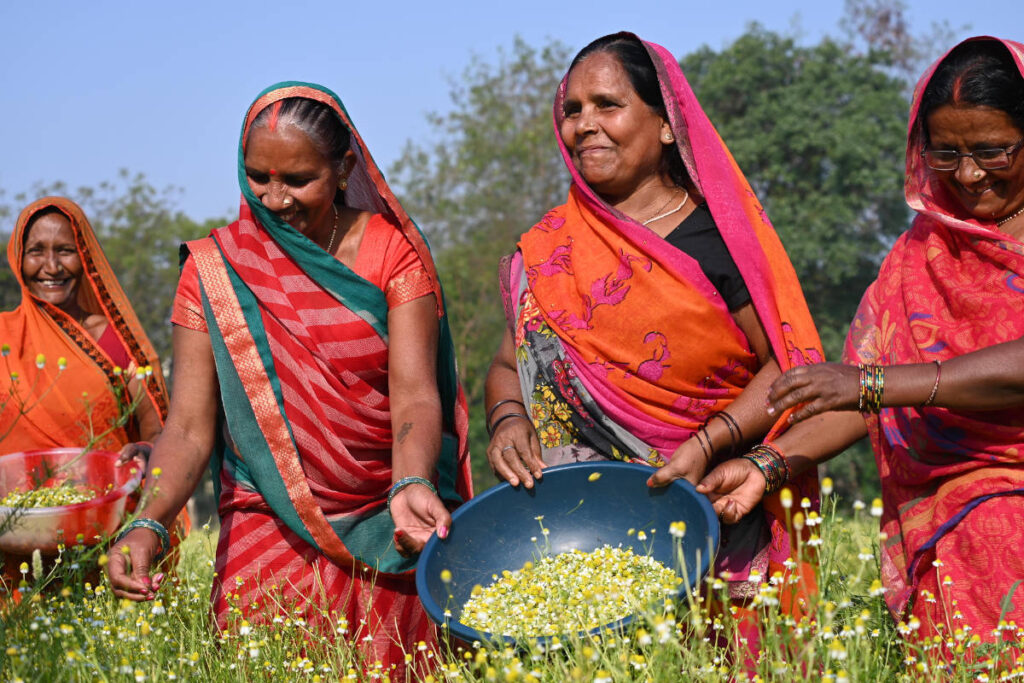
Organic Chamomile for Quality and Taste
Organically grown Chamomile, especially when grown using regenerative organic practices that mimic nature, is typically superior in quality and flavor.
This is due to many factors, such as how a natural growing environment allows the plant to reach its full potential in active plant compounds and flavor.
For example, attention to soil health plays a significant role in plant health and nutrient content.
The soil acts as the microbiome of its plants, allowing an optimal balance of healthy microbes and nutrients to nourish and protect.
Several research studies have demonstrated the nutritional superiority of various organic plants.
Additionally, when herbs and flowers, like Chamomile, are grown organically, pollinators can work uninhibited, which benefits the bees and the plants.
Synthetic insecticides injure and kill pollinators, thereby preventing the natural processes and benefits of pollination for plants and insects.
Organic Chamomile for the Planet
Chamomile is one of the world’s top-selling herbs, with a market share of over 500 million and thousands of tons grown annually.
Unfortunately, only a fraction of it is grown organically, which is problematic for our planet.
Research has shown organically-grown foods and herbs, including Chamomile, help protect the environment in many ways, including:
- Keeping synthetic pesticides, herbicides, fungicides, and insecticides out of our soil, air, and waterways.
- Protecting pollinators whose numbers are dwindling are vulnerable to synthetic insecticides. Without pollinators, we would be without many of the foods we love.
- Reducing glyphosate use. Glyphosate has been associated with various cancers and environmental harms.
- Creating healthier work environments for farm workers (healthier people, healthier planet).
- Protecting soil health, including the erosion of topsoil, which is essential for drawing down carbon and feeding the planet.
- Reducing fossil fuel use from lack of synthetic pesticides and less use of large farming equipment.
- Lower water consumption, which is a pleasant side-effect of healthy soil.
- Protection for wildlife and aquatic systems, both of which can be harmed by use of pesticides.
Who knew such significant implications could come from simply choosing organic Chamomile and other organic foods?
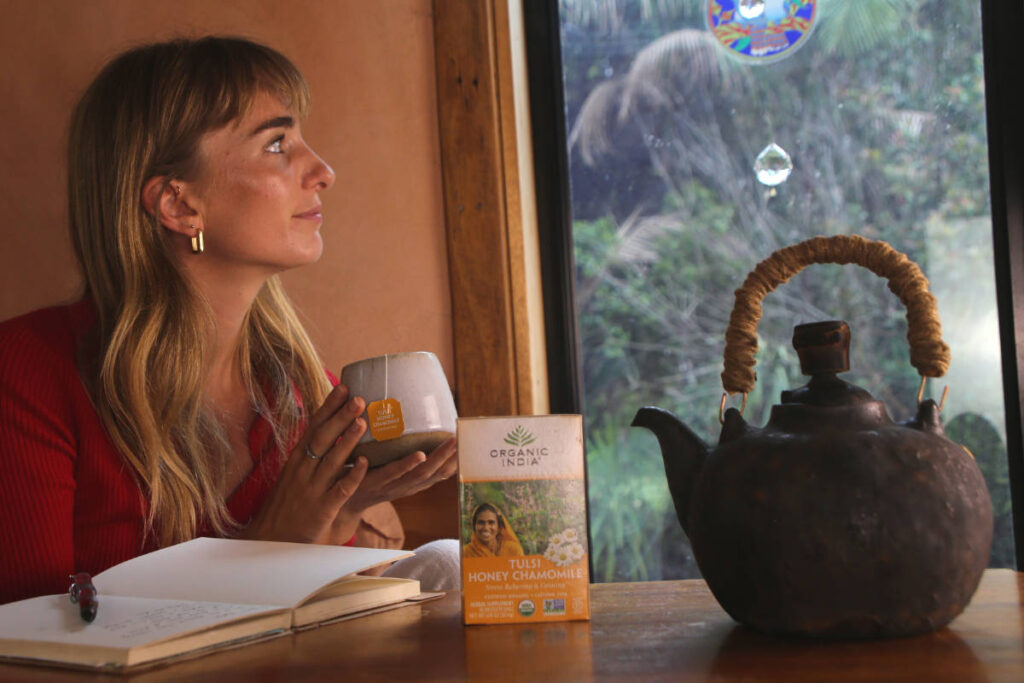
Regenerative Organic Chamomile
At Organic India, we have been pioneering regenerative organic herb growing for decades.
We’re also one of the top buyers of chamomile in the world, and we take that very seriously.
Today, as always, we are dedicated to growing and sourcing herbs, like Chamomile, that are grown using Certified Organic Regenerative Agriculture practices.
This creates teas, like Tulsi Honey Chamomile, that are superior in flavor and aroma while maximizing their beneficial phytochemical compounds.
Careful sourcing of raw materials, plant and soil pesticide testing, and third-party testing at IOF/IEC certified labs ensure our organic Chamomile and other herbs are free from harmful contaminants, including pesticides, herbicides, mold, heavy metals, bacteria, and others.
Experience the difference for yourself with Organic India’s line of Organic Chamomile teas, including:
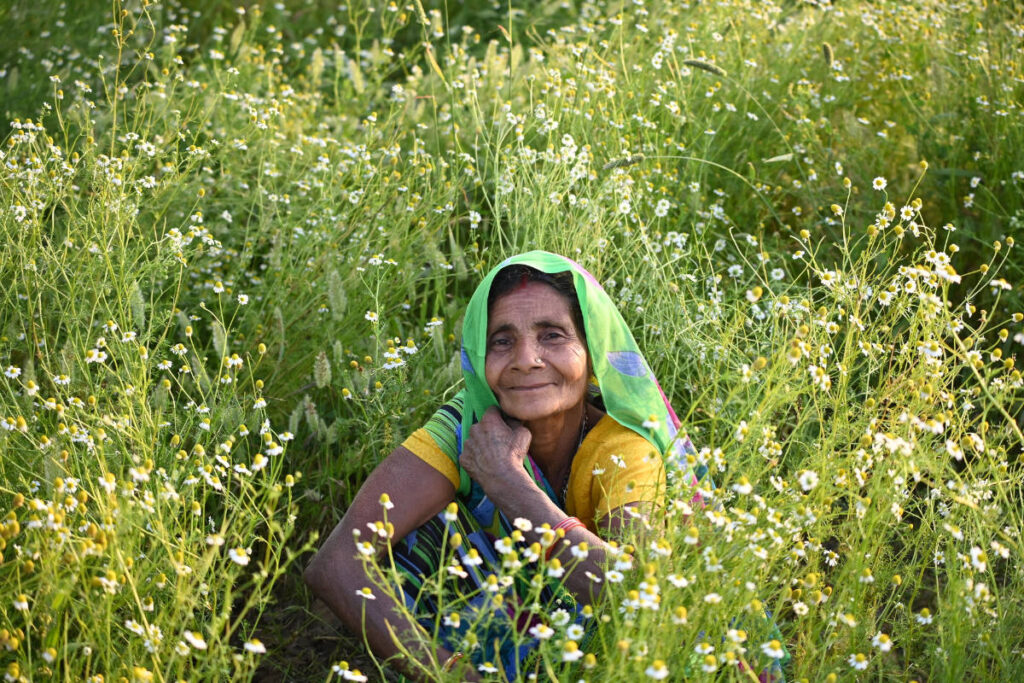
Stay connected for more Chamomile news in the near future. We can’t wait to share what we have in the works. To learn more about the benefits of Chamomile, see: 7 Surprising Benefits of Chamomile Tea.

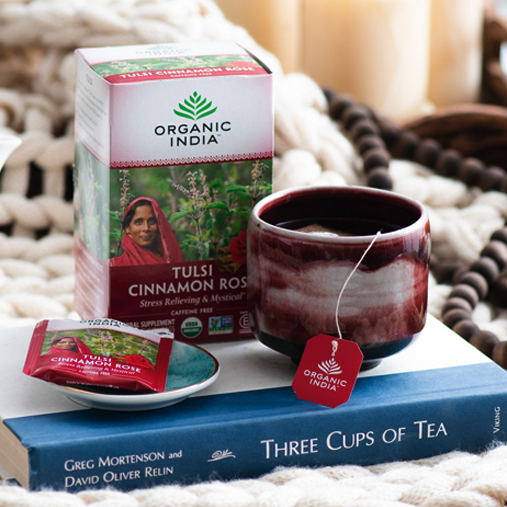
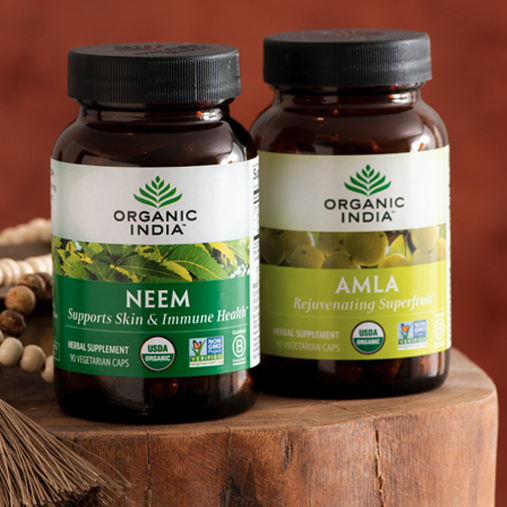
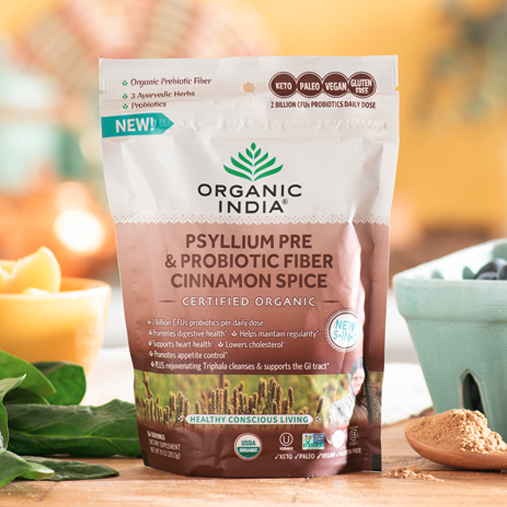
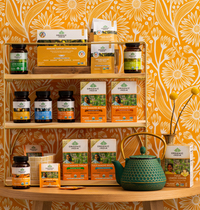
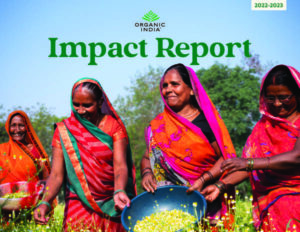
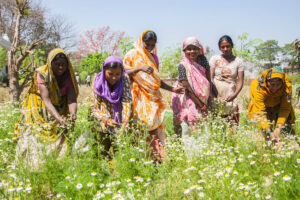


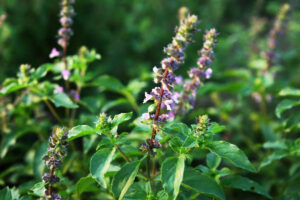
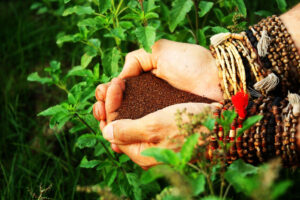
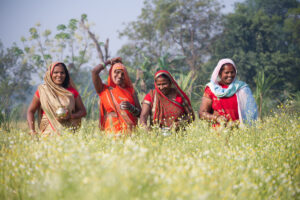



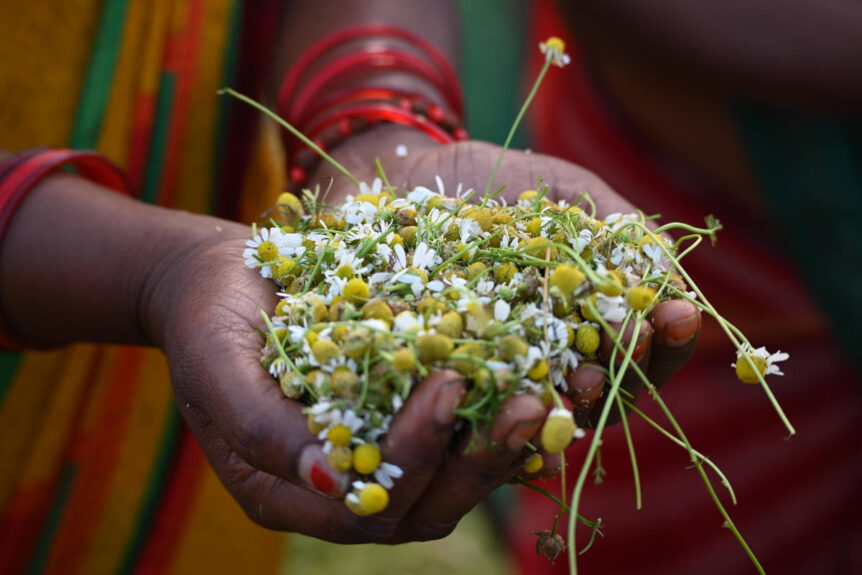
 Kristen Boye is a freelance natural health and green living writer, copywriter, and editor. Kristen was raised on an organic farm in British Columbia which inspired her life’s work. She holds a Bachelor’s Degree in Natural Health, is a Certified Natural Foods Chef, a medicinal herb farmer, natural foods advocate, and is obsessed with writing, homesteading, researching, regenerative agriculture, and words in general. Kristen lives with her husband and two children on their medicinal herb farm in Western North Carolina
Kristen Boye is a freelance natural health and green living writer, copywriter, and editor. Kristen was raised on an organic farm in British Columbia which inspired her life’s work. She holds a Bachelor’s Degree in Natural Health, is a Certified Natural Foods Chef, a medicinal herb farmer, natural foods advocate, and is obsessed with writing, homesteading, researching, regenerative agriculture, and words in general. Kristen lives with her husband and two children on their medicinal herb farm in Western North Carolina